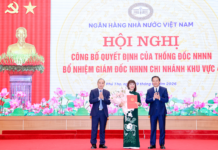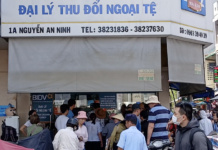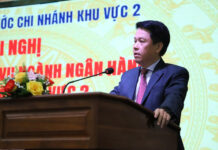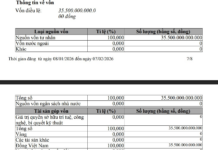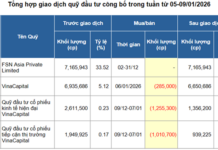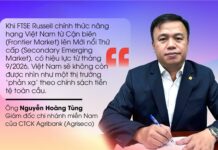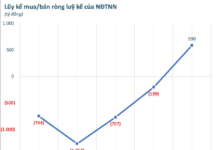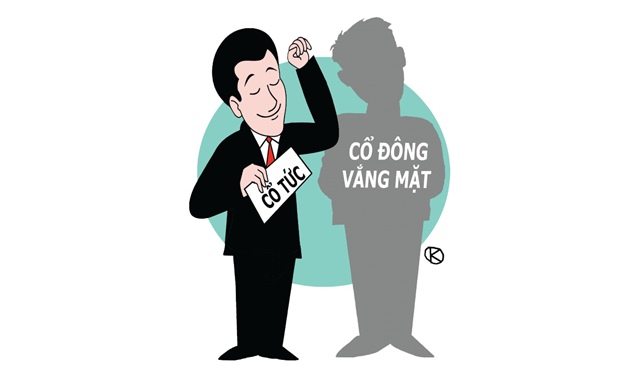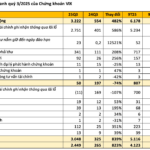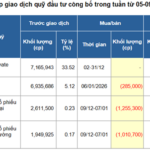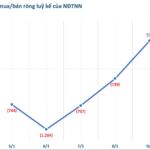Notably, this situation is not rare but rather widespread, especially in joint-stock companies formed through the equitization of state-owned enterprises.
Due to the challenges in tracking these amounts over many years, numerous companies have sought ways to “handle” these accounts to streamline their accounting records. Consequently, some ideas have emerged suggesting the allocation of such amounts to other income. As a result, businesses are implementing two approaches:
(i) Submitting to the General Meeting of Shareholders (GMS) for approval to recognize this amount as “other income” after a certain period (e.g., 3 years, 5 years) if the shareholder does not claim it.
(ii) Applying the mechanism for handling ownerless property (Article 228 of the 2015 Civil Code). According to this idea, after the company has fully implemented public notification procedures, if the shareholder still does not claim the dividend within a long period (e.g., 3 years, 5 years), the dividend may be considered ownerless property and handled in accordance with Article 228 of the 2015 Civil Code—meaning the company may establish ownership over the ownerless property after completing the necessary procedures.
Legal Validity of These Options
We believe both handling methods lack the necessary legal basis. Specifically:
According to Article 138 of the 2020 Enterprise Law, the GMS does not have the authority to revoke a shareholder’s right to dividends. This right is a legal property right, protected by Article 32 of the 2013 Constitution and Article 163 of the 2015 Civil Code—only the law may restrict ownership rights. Therefore, a company may only recognize unpaid dividends as “other income” when there is clear evidence that the obligation to pay dividends has ceased (e.g., as per a court judgment or decision by a competent authority determining the shareholder no longer has the right to receive dividends). Meanwhile, the right to receive dividends is a legal right that does not expire over time, unless otherwise provided by law or decided by a competent authority. Arbitrarily transferring unclaimed dividends of unreachable shareholders to other income carries significant legal risks, especially during audits, tax inspections, or shareholder complaints, as such actions may be deemed an infringement of shareholder property rights.
|
The inability to contact a shareholder does not imply they have relinquished their ownership or dividend rights. Thus, even if the company has fully implemented notification measures, treating unclaimed dividends as ownerless property still lacks legal basis. |
Regarding the idea of treating dividends as ownerless property, it is even more legally unfounded. Article 228 of the 2015 Civil Code only applies to property whose owner cannot be determined or whose owner has abandoned ownership rights. Dividends, however, are directly linked to a shareholder’s shares, and the owner of the shares is clearly identified in the shareholder registry. The inability to contact a shareholder does not imply they have relinquished their ownership or dividend rights. Thus, even if the company has fully implemented notification measures, treating unclaimed dividends as ownerless property still lacks legal basis. These dividends remain the property of the shareholder, protected by Article 32 of the 2013 Constitution and Article 163 of the 2015 Civil Code. If a company arbitrarily records such dividends as other income or disposes of them, it faces serious legal risks, including potential demands for repayment or penalties for property rights violations.
Therefore, even after lawful notification, unclaimed dividends of unreachable shareholders cannot be considered ownerless property. A more appropriate approach is for the company to continue recognizing the dividend payment obligation in its accounting records, while publicly disclosing the list and value of unclaimed dividends, preserving the shareholder’s right to claim them at any time as per legal provisions.
In summary, recognizing such amounts as other income without meeting the necessary conditions violates the principle of prudence in accounting and may lead to adjustments during audits or financial inspections.
Some Suggested Handling Methods
Retained earnings are one of the components of owner’s equity (Owner’s equity includes: (i) Owner’s contributed capital; (ii) Retained earnings after tax; (iii) Other funds and capital belonging to owner’s equity). From an accounting perspective, when the GMS decides to distribute cash dividends, the retained earnings are converted into a payable obligation to shareholders. This amount is recorded in the accounting books and is only written off upon completion of the payment obligation. The inability to contact a shareholder does not extinguish the company’s payment obligation or alter the legal nature of the dividend—it remains a legitimate property right of the shareholder, merely unrealized in practice.
|
If a company arbitrarily records such dividends as other income or disposes of them, it faces serious legal risks, including potential demands for repayment or penalties for property rights violations. |
Therefore, companies are required to continue recognizing the payable amount under account 338, while maintaining a detailed list of shareholders who have not received dividends, the reasons for non-payment, and the corresponding values. This is a prudent and accounting-compliant approach, ensuring the company does not violate its financial obligations to shareholders. Although, over many years, this item may inflate payables and complicate auditing and financial reporting, under current enterprise, accounting, and tax laws, this is the only viable solution without alternatives.
Additionally, companies should enhance efforts to verify shareholder or heir information through securities depositories, business registration authorities, or public announcements in the media.
(*) LSG Law Firm LSG
() BTB Law Firm BTB
Phạm Hoài Huấn Phan Huy Đức ()
– 07:00 25/11/2025
Unlocking Land Access: The Critical Bottleneck Stalling Industrial Zone Projects
Attorney Bùi Văn Thành highlights that the most significant bottleneck remains in land acquisition. The 2024 Land Law mandates the state to handle land reclamation and clearance for industrial zone projects. However, in practice, negotiating with local residents continues to be extremely challenging.
Central Bank Halts Real Estate Deposit Loans
Banks in Ho Chi Minh City and Dong Nai have been instructed to temporarily halt lending for real estate deposit payments until an official conclusion is reached.






